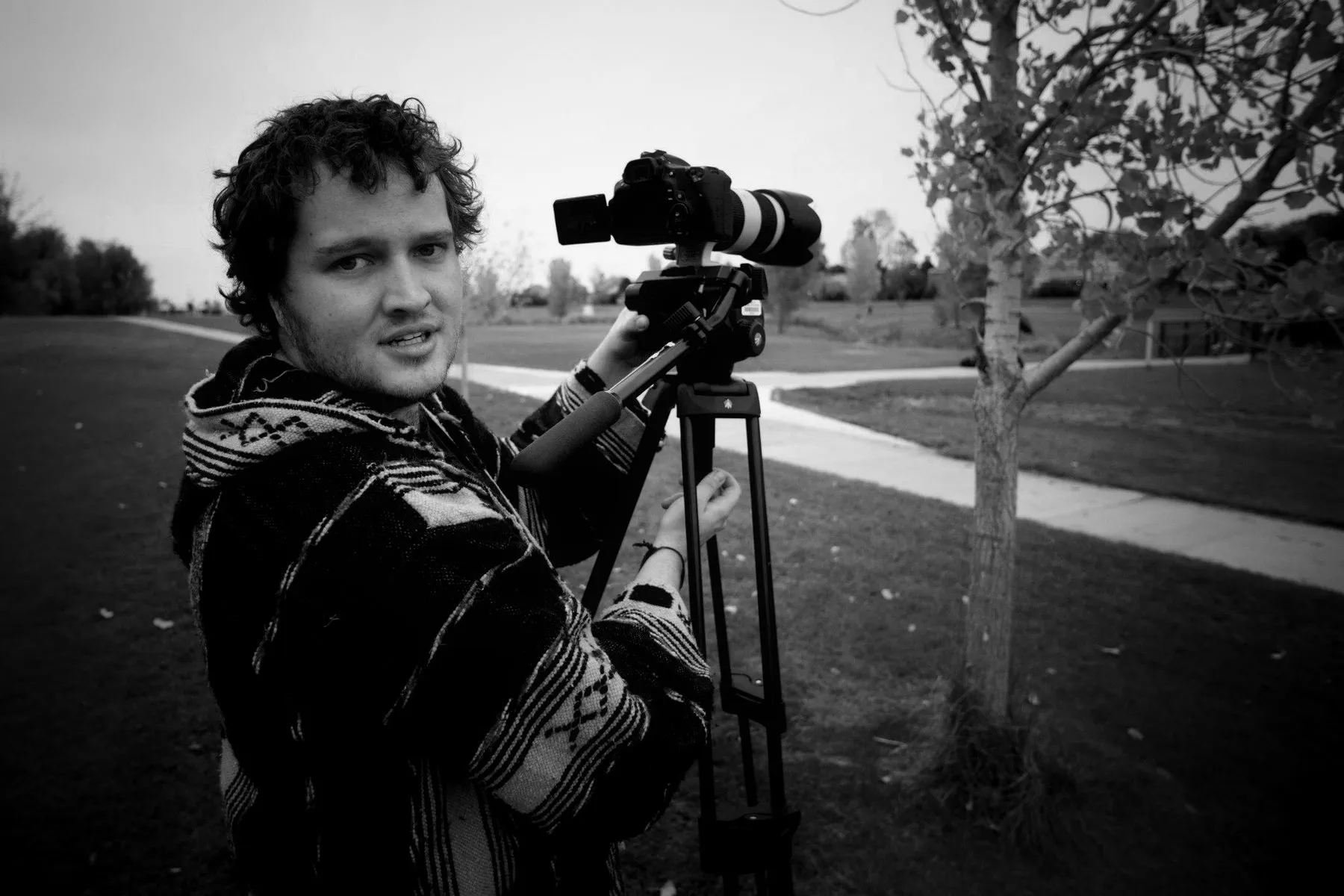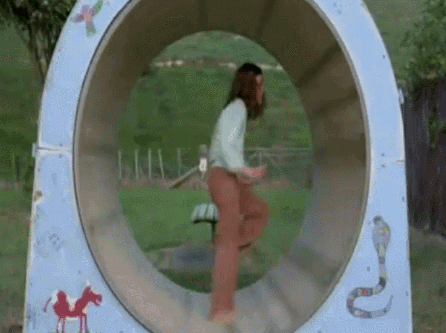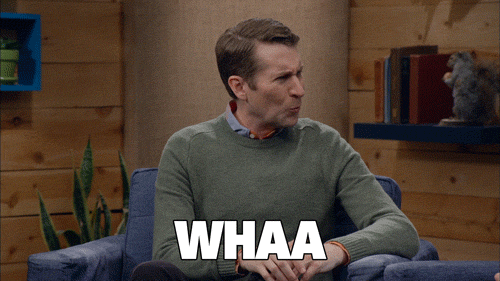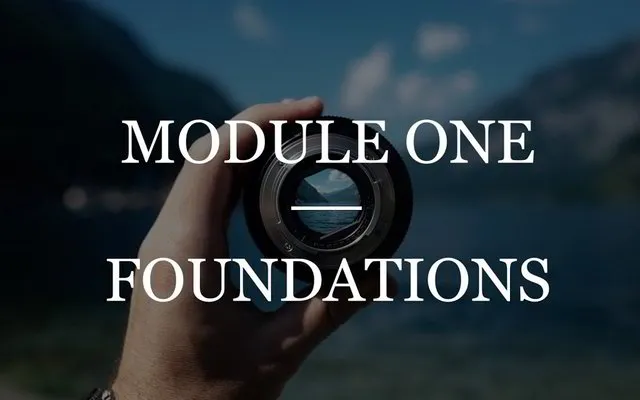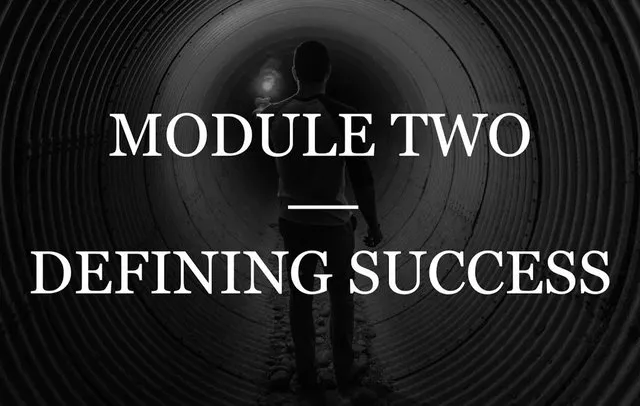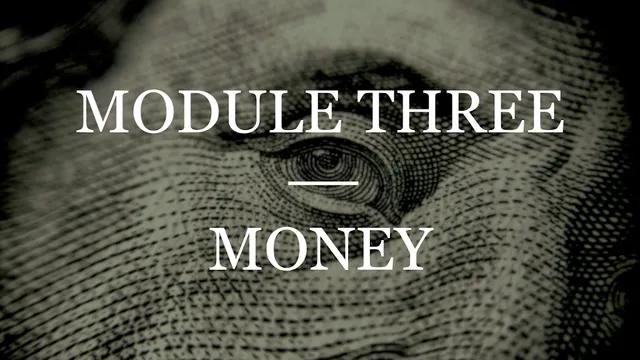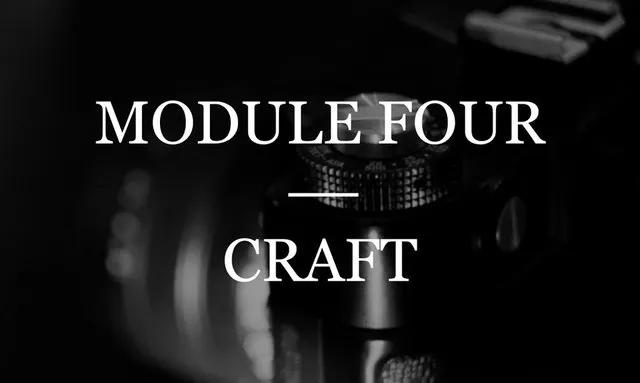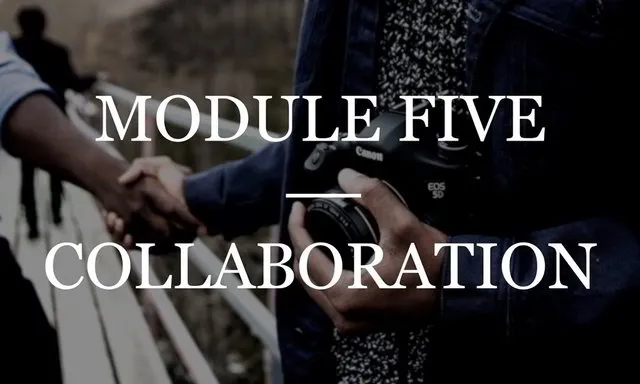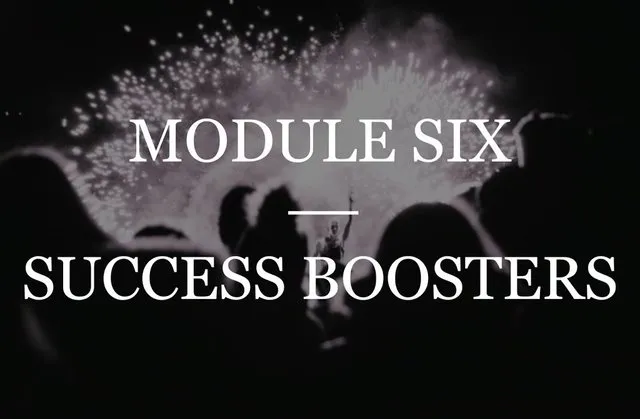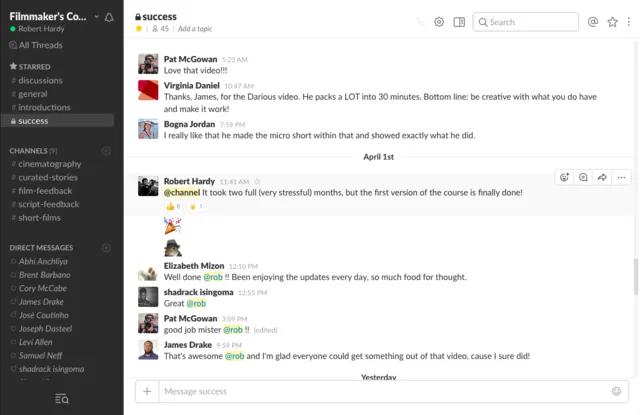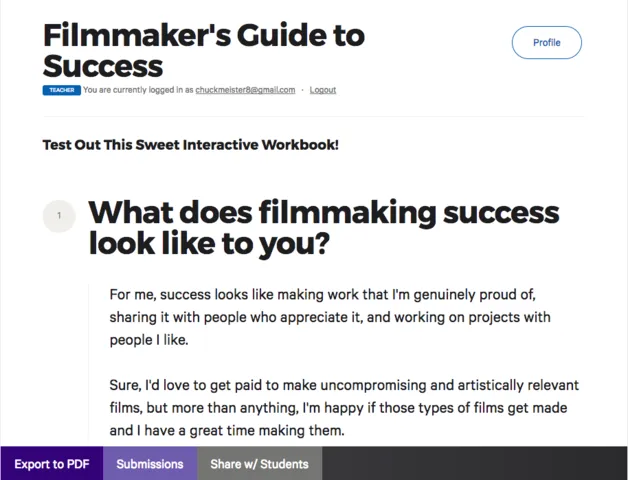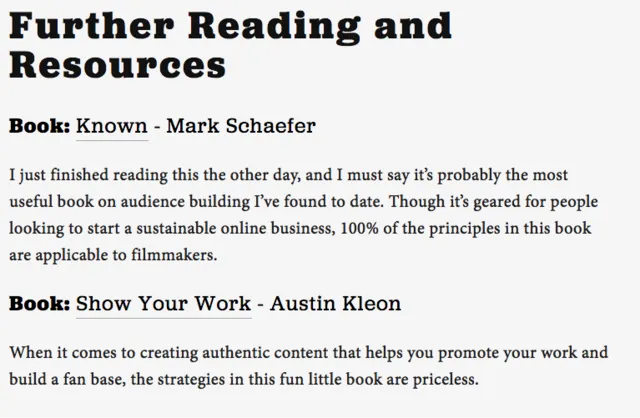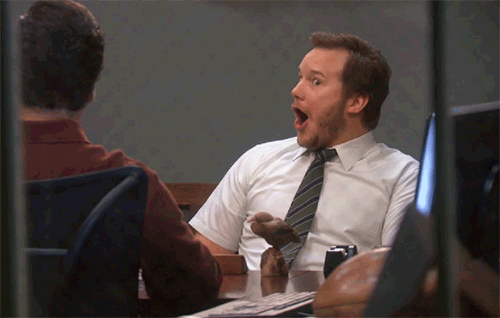Why are some filmmakers insanely successful, while others spend years spinning their wheels and getting nowhere?
I've spent the last three years of my life trying to unpack this question.
In that time, I've found a few useful, but counterintuitive answers.
But perhaps the most surprising insight was this one...
Great film careers are not reserved for those with raw talent or big bank accounts, and it's not just for extroverts who can network their way to the top.
Instead, the difference is deceptively simple. It lies in your daily habits and routines. It lies in your ability to set goals and achieve them. It all comes down to doing the right work, consistently.
So here's my promise: You can build the filmmaking career you've always wanted. You can make a living doing what you love. It won't always be easy, and it won't happen overnight. But it's absolutely, 100% possible. And I'm going to show you how, step-by-step.
Turns Out... Nobody Teaches Filmmakers How to Build Great Careers. (I learned this the hard way)
Hey friend.
Robert Hardy here, but you can just call me Rob.
I'm the creator of the fine course you're reading about. I'm also an independent filmmaker who's been lucky enough to write for and be featured in some of the largest filmmaking sites on the internet.
When I got out of film school, I thought I had everything I needed to start building my ideal career.
Boy was I wrong.
Sure, I had some basic technical skills. I had a few short films under my belt that I would use as "calling cards" to get jobs in the industry. I even had a small network of filmmaking friends who were ready to take on the world with me.
"In a few years, I bet I'll be shooting super cool feature films in NYC," I told myself.
Ha!
In truth, after those few years passed, I was still in Denver, working PA gigs on dumb reality shows, shooting bland talking-head corporate videos that barely covered my rent, and generally not progressing towards my goals in any meaningful way.
I was stuck.
It turns out that despite some formal education, I wasn’t prepared for the real world. And I had no clue how to move from where I was to where I wanted to be.
That's when I started really digging into filmmaking books and blogs and magazines, and listening to a ton of podcasts. "Surely," I thought, "these will fill in any knowledge gaps that film school didn’t prepare me for!”
And frankly, that strategy only made things worse.
Not only did I become a bit obsessed with staying up to date with the latest gear (none of which I could afford), but I also started to compare myself to all of the "successful" filmmakers that all the blogs and magazines love to write about.
On top of that, no one was sharing any information about how to systematically work your way towards the career you want. Sure, there were occasional tips like "grow your network" or "keep working on your craft," but let's be honest, random tips are not a comprehensive plan for how to succeed.
I can’t even begin to tell you how frustrating that was. There was a sense that I was trapped, and that my filmmaking dreams wouldn't ever amount to anything more than low-level video production gigs.
And it was then that I nearly gave up on filmmaking forever. More about this later...
Filmmakers have to figure out how to be successful on their own
All of this frustration got me thinking.
If film schools aren't really teaching filmmakers how to succeed, and if blogs and magazines and podcasts aren't helping much either, then what should aspiring filmmakers do?
The answer is, they need to figure all of this important stuff out for themselves.
And in the eight years I've been immersed in the world of indie film, I've seen filmmakers try all sorts of things to achieve the success they desire:
- They make a feature film before they’re ready—often paid for with credit cards. Almost inevitably, the film fails to make any money back.
- They get obsessed with gear. They can recite word for word the specs of any new camera, but when you ask what they've produced lately, their face goes blank.
- They move to Los Angeles or New York City with no real plan for how to succeed, and then they spend more time as baristas and Uber drivers than they do making films. After all, those are damn expensive places to live.
- They work hard to improve their craft, but in an aimless and unfocused way, then pray for overnight success to finally come.
- They read blog post after blog post, listen to all of the aspirational podcasts, attend seminars and workshops. They spend far more time consuming than they do producing.
- They start making their work look and feel like everyone else’s based on the assumption that success comes from conforming with other filmmakers.
- They sit around waiting for opportunities to come to them instead of going out into the world and finding them.
You already know this, but none of those things lead to successful, sustainable careers.
Instead, they lead aspiring filmmakers to spin their wheels and get nowhere for months, years, even decades at a time.
Trust me, I did a lot of these things, and ended up in a bad place as a result of it. And I've seen countless filmmaking friends and acquaintances fall prey to all of the same mistakes.
Now, does this mean that people who want to make a comfortable living as filmmaker should just give up because everything is hopeless?
Hell no it doesn't. In fact, I truly believe that any filmmaker—regardless of skill, age, financial status, or anything else—can build the exact career they want.
Two Destructive Mental Stories That Keep Us Trapped and Spinning Our Wheels
Let's take a step back for a moment.
Sure, none of those tactics I shared above lead to success. But you already know that.
In fact, I'm guessing you already know exactly what you need to do to make the next big leap in your career.
Information isn't your problem. Thanks to the internet, we all have access to more useful information than ever before, and most of it is free!
Yet for a lot of us, that information isn't giving us the edge we need. It's not helping us make consistent progress towards our goals.
The underlying truth here is that usually, your biggest obstacle—the thing that’s holding you back most from your ideal film career—isn’t a lack of knowledge or strategy.
It’s your own psychology. It’s you.
In my own experience (and with lots of the filmmakers I’ve worked with and coached) when it comes to making progress in our lives and careers, we’re our own worst enemy.
And, of all the bad mental habits that hold us back, there are two destructive stories that we tell ourselves that are responsible for much of our inaction.
These stories are basically a mental roadblock to getting shit done and making progress.
To be successful in our careers, we must destroy them.
Dangerous Mental Myth #1: "I need to gain more knowledge, more gear, more everything!"
Have you ever said to yourself, “I’ll be ready for the next big leap in my career as soon as I have [fill in the blank]”
Maybe it’s a new piece of gear. Maybe it’s a technique or skill you have to learn. Maybe it’s something psychological like confidence or motivation.
“Once I’ve got that,” you tell yourself, “then I’ll be ready to do great things!”
Then a funny thing happens. As soon as you acquire that knowledge, that piece of gear, or improve your psychology, you instinctively look for the next thing to learn, the next thing to buy.
It’s a completely natural thing to do. We’re evolved to collect and store things. That’s what our distant ancestors had to do in order to survive, and those genetics are still part of us.
Now here’s where things get a little dangerous. It actually feels productive to consume and collect. It feels like we’re making progress when we learn new things and buy stuff. That spike of dopamine we get from buying something new makes us feel great, at least for a brief moment.
That’s why it’s so easy to get stuck in a pattern like this. We consume and collect, consume and collect, all the while feeling good and thinking we’re doing something worthwhile.
Don’t be fooled. This is just procrastination in disguise.
We’re using a disproportionate amount of our energy on consuming and collecting stuff, and not investing nearly enough into doing the work that will move our careers forward.
And the more we train ourselves to consume—the more it becomes habitual—the harder it becomes to produce.
If we’re not careful, it can turn into a never-ending hamster wheel of doom.
If any of this sounds like you, don’t worry. I still struggle with this pretty much every day.
By our very nature, we’re designed to seek out pleasure and avoid pain. It’s one of those biological functions that at one time served to keep us alive.
But at the same time, shifting your energy from consuming to producing is one of the secrets to having a great film career. It’s not as sexy or fun as buying new stuff. But it’s damn effective.
In fact, I’m willing to bet that you could make an insane amount of progress towards your career goals in the next 90 days with the exact knowledge and gear you have right now. You just need to focus your energy on the right kind of activities.
And that’s exactly what you’ll learn to do in the Filmmaker's Guide to Success. It’s going to get you out of consumption mode and into a routine where you consistently tackle your important work every day.
But I’m getting ahead of myself. First we’ve got another myth to tackle. Onward!
Dangerous Mental Myth #2: "Great film careers are reserved for the wealthiest, most talented, or those who are the best at networking."
Have you ever looked at a successful filmmaker, whether it’s a Hollywood hotshot like George Lucas or an indie darling like Mark Duplass, and thought to yourself, “Well of course they were successful! They had [fill in the blank] advantage!”
Maybe it’s that they’re insanely talented. Or they came from a wealthy family. Or they’re naturally outgoing and great at networking. Or they were in the right place at the right time. Whatever.
These thoughts might be true—some people do have advantages in life—or maybe they’re not. Doesn’t really matter.
The only truth that matters is that when you start thinking this way, it makes you less likely to succeed.
Because when you start thinking about the advantages others have, it’s easy to justify why you aren’t as successful as they are, and why you never will be. It’s a way for us to protect our ego and feel better about our current position in life.
And there’s nothing wrong with being comfortable with where we currently are. We’re all on different paths and at a different place in our journey. Nothing wrong with that.
But when we view ourselves as being less privileged or gifted than other filmmakers, it robs us of our ability to author our future. It makes us feel like our potential is less than theirs because we don’t have the same advantages.
Not only is that not useful, it’s just not true.
Based on what I’ve seen and experienced, great film careers aren’t reserved for the wealthiest, luckiest, or most talented.
Instead, they’re reserved for those who are willing to think strategically, put in the consistent hard work, and be really damn persistent.
If you can do those three things, I guarantee you can build whatever kind of film career you want.
Whether you want to make it in Hollywood, build a successful production company, or make your living with indie films. All of it is possible, for anyone reading this.
Yeah, it’ll be easier to get ahead if you’re super talented, or if you’ve got money, or if you’re great at networking.
But not having those things isn’t a deal breaker.
It just means you’ll have to work a little bit harder. But when you’re doing hard work in pursuit of a career you love, it’s totally worth it.
So with all of that said, my two questions for you today are…
- Do you want a thriving and profitable film career?
- Are you willing to do the hard work required to get there?
If you answered yes to both of those, keep reading.
Thirty-Four Words That Changed My Life
Earlier in this letter, I mentioned that after years of frustration and spinning my wheels, I nearly gave up on filmmaking entirely.
In fact, I actually did give it up for awhile.
I was so burned out and depressed with my lack of traction, that I decided to make my living as a freelance writer, at least while figuring out what to do with my life.
And here’s the sad part, making a living as a writer was equally as frustrating!
I had a few steady clients, but my income was still low and inconsistent. And because of that, my motivation waxed and waned, and most days I wouldn’t write anything at all.
It was around this time that I hit my lowest point.
I wondered if I should just give up on trying to make a living as a creative professional and just get a “real job.”
I wondered if there was something wrong with me, if I just didn’t have the motivation and discipline everyone else did.
I felt broken, lost, and desperate for something to save me from my impending life as a 9-5 office worker.
At the time, I happened to be reading Steven Pressfield’s The War of Art. Quick side note: if you’ve never read that book, stop what you’re doing and grab a copy. It might just change your life, like it did mine.
Anyhow, Pressfield talks about the idea of how “turning pro” is the key to making real progress. And one of the defining characteristics of a pro is that they show up every single day to do their work.
In other words, pros have a bulletproof, unbreakable routine at the center of their life.
They don’t rely on motivation or inspiration. Pros just show up and do the work every day.
“Well that’d be great,” I thought. “But I could never build such a rigid daily routine. I just don’t have the discipline to stick with it.”
And then I came across this passage, on page 101. It's actually an entire chapter by itself.
"There is no mystery to turning pro. It’s a decision brought about by an act of will. We make up our minds to view ourselves as pros and we do it. Simple as that."
I don’t know why, but that simple paragraph, just 34 words, hit me like a ton of bricks.
It was an epiphany. I could choose to turn pro. I could choose to wake up the next morning and do my work. Then I could choose to do it the following day, and so on.
There was a clear choice in front of me. Turn pro, or continue spinning my wheels and disliking my life.
It wasn't a difficult choice.
So I started writing every day—just 10 minutes to start—first thing in the morning. I wrote whether I felt like it or not. And most days, I didn’t feel like it, but I put my ass in front of the keyboard, and I pushed through the discomfort.
And no, it wasn’t some magical immediate transformation, because life doesn’t work that way. But it’s also not an understatement to say that within two or three months, my life began to change for the better.
This daily routine is the reason my freelance writing career took off. It’s the reason that I no longer go to bed with that nagging “I should have accomplished more today” feeling. And above all, it’s the reason I have confidence that I can achieve anything I want in the world of writing, film, or whatever else.
I didn’t stop learning after those initial months either.
Increasingly, I found myself interested in psychology and behavioral economics, and how we can create positive changes in our lives without all of the cliché self-help guru crap that’s floating around on the internet.
As my bookshelf began to fill up, and as I began to apply these powerful concepts to my life—routines, habits, goals, the 80/20 principle, emotional resilience, etc—I continued to make progress in ways I never had before.
And I started wondering, if all of this works so well for a writer, why not a filmmaker?
A repeatable framework for building incredible filmmaking careers
In December of 2015, I started getting back into the world of filmmaking after my little break.
I also founded a site called The Filmmaker's Process (now called Filmmaker Freedom), to figure out an answer to that question I asked earlier...
Why are some filmmakers insanely successful, while others spend years spinning their wheels and getting nowhere?
Like I mentioned, I've interviewed hundreds of filmmakers since then.
Some have been incredibly successful—as Hollywood editors and DPs, as production company owners, as commercial filmmakers, and as indie film entrepreneurs.
Others have been less successful—doing many of the same things that kept me stuck and spinning my wheels back in the day.
I took what I learned through these interviews and started applying it to my own journey as a filmmaker.
Turns out, these ideas not only work in the context of filmmaking, but they work exceptionally well.
———
It was around this time that I started sharing this stuff with a few of my closest filmmaking friends. I wanted to see if it could help my film peeps as much as it had helped me.
One of my friends, who had been struggling for a year to build his fledgling production company, started a new daily routine around prospecting for clients and reaching out to them. In three months, he was booked solid and had a waiting list of good clients.
Another friend, newer to the world of filmmaking and anxious about actually making stuff, started producing one new “micro film” every two months. Now she has a cushy job doing video work for an agency in Denver. She’s also developing a few cool passion projects on the side, and couldn’t be happier.
In my own life, I began writing and working on films again. Not with an eye towards film industry success—because that's not a path that interests me anymore—but instead with a focus on making work I'm proud of, building an audience, and making my living independently.
And sure enough, with my new path through filmmaking, and my new emphasis on routine, I've been able to write 15 films and counting, build an engaged email list, and learn valuable new skills like producing, sound design, and marketing.
None of this is to say that I'm a wildly successful filmmaker now. That would be a convenient thing to say on a sales page like this, but it wouldn't be true. And I don't roll like that.
Instead, I'm just a regular dude who's passionate about making films and learning new things. And I'm using what I've learned to finally make real, measurable progress towards my own definition of "filmmaking success."
And that's the reason we're here right now. I'm 100% confident these strategies can help any filmmaker who's wants to get unstuck and make real progress of their own.
———
From all of this research, which I've been doing for about 3 years now, I found that there are just a few key things that will help you as a filmmaker make the progress you’re looking for.
- Figure out what direction you want to travel. Your definition of “success” should be dependent on the kind of life you want to live, not what society or culture tells you.
- Discover a few key activities to focus on. Not all work is created equal. You want to identify the things that will actually make a difference in your career if done consistently.
- Build a daily routine around those activities. This is the key to the whole thing. Without some kind of routine around your important work, there is no consistent progress.
- Set and achieve specific short term goals. Routines are great for making slow and steady progress, but ambitious short term goals help you make big leaps forward.
- Learn to be gritty and resilient. No matter which career path you choose, you will face obstacles and setbacks. But you can overcome them and persist.
Seriously, that’s it. None of this stuff is particularly complicated, and I didn’t invent any of it. There’s no “magic bullet” here, and none of this will solve all of the problems in your life at the snap of a finger.
Instead, it’s just about giving you a framework to build your film career. It’s about directing more of your energy to the things that matter, the things that work, and less of your energy towards the things that don’t.
That’s not to say any of it is easy. Far from it. Like everything worthwhile in life, this requires hard work and dedication. Nothing will be handed to you.
But I promise this stuff works.
It works if you’re just starting out in film. It works if you’re trying to break into the film industry or move up the ladder. It works if you’re an indie filmmaker. And it works if you’re a freelancer or a production company owner.
Regardless of what you want to accomplish as a filmmaker, this simple system can get you there. It can put an end to the frustration, and help you make progress toward the career of your dreams.
With all of that said, I’d like to show you what I’ve been working on this year.
Introducing the Filmmaker's Guide to Success
My step-by-step course for filmmakers who want to stop spinning their wheels and make serious progress towards the career of their dreams, in as little as 20 minutes a day.
Trust me, this won’t be another generic “how to make a movie” course.
No, instead you’ll learn how to make films you're proud of, and actually earn a good living from it.
More importantly, I'm not just going to show you what to do, but how to do it. We'll cover five big ideas, each rooted in decades of psychological research, that will help you get out of your own way and build the career of your dreams.
You’ll learn specific, actionable strategies to…
- Come up with a personal definition of filmmaking success so you can do what you love without compromising your quality of life. (This can be a real problem in the world of film, especially in Hollywood where 14-16 hour days are the norm.)
- Uncover the most impactful activities for achieving that success—using the 80/20 principle, the “focusing question,” and the power of strategic research. Trust me, once you know what to focus on, succeeding is just a matter of doing the work consistently.
- Build a rock-solid daily routine so you can make consistent and meaningful progress. The secret to achieving big things is focusing on that most important work, then doing it every single day. Even if for just 20 minutes, you can still make huge progress.
- Set and achieve ambitious short-term goals to make big leaps forward in your film career. You’ll learn why most of us fail with our goals, and get a precise roadmap to achieve even the biggest, scariest goals in your life.
- Become gritty and resilient, so you can overcome any obstacle life throws at you. And trust me, there will be obstacles. Lots of them.
Beyond those five outcomes, you’ll also learn everything I know about making a stable and lucrative living as a filmmaker, how to hone your voice and build your skills, the secrets of authentic networking, and plenty more.
After you enroll, you can expect one simple, yet powerful lesson to be delivered to you every day for the next month.
Each of these lessons contain psychological frameworks, tactics, and strategies that can be life-changing on their own, but when you start taking action and stacking them on top of one another, it’s like throwing gasoline on a fire.
Let's dive into the curriculum and take a closer look at what exactly you'll learn.
- Your step-by-step roadmap to a profitable and enjoyable filmmaking career.
- Four powerful mindset shifts to destroy procrastination and get more done in less time.
- How to make time every day to move your career forward, even if you work a full time job and have a family to take care of.
- Using the psychology and neuroscience of habits to create a rock-solid daily routine.
- The art of following through with your routine, even when you don’t feel like it.
- Why almost everyone fails when they set ambitious goals, and what to do about it.
- A simple, repeatable goal-setting strategy you can use again and again as you climb the career ladder.
- How to sharpen the “internal compass” that will always guide you in the right direction throughout your career.
- What the hell is “success” anyway? You'll learn why you rarely feel successful, even when you accomplish your goals.
- How to define filmmaking success for yourself so that society doesn’t define it for you.
- Unearthing your most important work using the power of strategic research and the “focusing question.”
- Why do you even want to be a filmmaker in the first place? Turns out, your answer to this matters a lot!
- Everything I know about making a living in the film industry.
- The client work playbook: How to freelance or start a production company that’s insanely profitable, even in a crowded market.
- How to start building an audience and making a living from your indie films.
- The best ways to diversify your income and prevent financial uncertainty from upending your film career.
- Why day jobs aren’t as evil as you think, and how to get from where you are to where you want to be.
- Simple, scientifically-proven ways to improve your filmmaking skills quickly.
- How to find your unique voice as a filmmaker so that you can stand out from the crowd and make work you’re proud of.
- The tried and true path to building an impressive body of work that opens doors in your career.
- The art of ditching perfection, finishing what you start, and building unstoppable momentum.
- Dealing with fear, resistance, and failure like a boss.
- Why collaboration is the key to producing incredible work and building a thriving career.
- How to network with ease and authenticity, even if you’re shy and introverted like I am.
- Why building a “filmmaking tribe” is one of the best things you can do, especially if you want to make your passion projects.
- How to become an effective and inspiring leader so that even small teams can accomplish big things.
- Investing in yourself, or the non-filmmaking skills that all filmmakers should learn.
- Why taking care of your physical and mental health is one of the best things any filmmaker can do.
- What psychologists and ancient Greek philosophers can teach you about grit, resiliency, and becoming truly unstoppable.
- The art of taking strategic risks and making your own luck in your career.
- Putting it all together, or how to build your personal plan for success.
Bonus Goodies That Make The Course Even More Awesome
The lessons in the Filmmaker's Guide to Success are plenty valuable on their own, but it's the extras that make this course one of a kind. Let's take a look:
A World Class Community of Like-Minded Filmmakers to Keep You Motivated
No good online course would be complete without a thriving community, and the one I've built for this course is among the very best. You can chat in real time with fellow students (and myself), or you can message people directly for 1-on-1 conversations. We're a helpful bunch, and we'll make sure you stick to your goals.
Interactive Workbooks to Help You Apply Each Lesson to Your Life
Knowledge isn't worth anything until you take action and start using it. That's why each lesson has an "interactive workbook" embedded directly below the content. The questions in said workbooks are designed to get you thinking—and applying—these principles to your unique situation. Plus you can use them to ask me questions about the lesson. It's pretty freakin' cool.
Personally-Curated Resources to Help You Dive Deeper Into Each Lesson
An immense amount of research went into this course, and I want you to have access to all of the same sources I used to build it. While the lessons themselves are condensed and actionable, if you really want to dig deeper, I've made it much easier to go down the rabbit hole. You can thank me later.
And of course, a TON of silly animated gifs
There are close to 200 silly gifs in the Filmmaker's Guide to Success. No joke. Well, it's kind of a joke, but that's the whole point!
What Real Students Are Saying About the Course
Ok, So How Much Is All of This Going to Cost?
Before we get to that, I have two important questions for you…
Here’s the first one. How much do you spend on gear each year? Just give me a ballpark estimate.
For me, I always had a habit of buying every vintage lens I could find. There was one year, 2012 I think, where I spent like $1600 just on random old lenses I found on eBay. That doesn’t even take into account all the money I spent on a new shoulder rig and follow focus.
I'd say my ballpark for the year was somewhere around $3000. And I didn’t even buy a new camera or computer or anything. So it was a light spending year, all things considered!
Thinking back on it, despite getting some cool old Soviet glass, that year kind of sucked. I spent so much of my time frustrated and pissed at myself for not making progress. For not moving closer to my goals.
It didn’t matter that I had “spent money on my passion.” It made me feel good briefly, but it didn’t move the needle.
That’s why my second question for you is a bit tougher. What would it be worth to you to have the filmmaking career you’ve always wanted?
I mean, really imagine your ideal career. Do it. Right now. I’ll wait…
- Imagine the interesting and creatively fulfilling projects you'll tackle, and the amount of care and attention you’ll bring to your work.
- Imagine the cool team you'll be working with, and the camaraderie and passion you'll all bring to your collaborative projects.
- Imagine the people who will watch and enjoy your work for years to come.
- And imagine getting paid well and supporting yourself and your family from doing work you truly love.
Feels great, huh?
When I stop to imagine this stuff, it makes me realize something. I would have gladly traded in that $3K I spent on gear to learn everything I know today. Had this course existed in 2012, I would have paid every last spare dollar I could find.
And it would have been 100% worth it.
So, that’s why I’ve priced this course at $300, or six payments of $50.
It's an affordable price for anybody who's truly serious about building a great career, but it's still an investment. And you should treat it like one.
Because if you pay attention and put in the work, this price is just a drop in the bucket compared to the value you’ll get throughout your career.
Hell, even if you take away nothing else, and just use some of the marketing and positioning strategies I share in the freelancing lesson, you could make tens of thousands of extra dollars next year. No joke.
I can't stress this enough, though. You've got to do the work for this course to be worth anything. Otherwise, you might as well hold onto your money.
But if you're willing to think outside the box, do some hard work, and be persistent as you chase your goals, I guarantee this will be the best $300 you've ever spent.
BUTTON
Other Perfectly Valid Questions You're Probably Asking Yourself Right at This Moment
Will I really be more successful after completing this course?
Come on now. You and I both know that's an unrealistic expectation to have of any course.
However, I can promise you that once you finish the course, you will have a comprehensive understanding of how to succeed, as well as all of the tools and resources you'll need in order to take action.
But make no mistake, you have to take action in order for any of this stuff to work. If you're looking for some kind of magic bullet, look elsewhere.
What kind of filmmakers is this course designed for?
Good question! I designed the Filmmaker's Guide to Success to be universal and timeless. No matter what kind of career path you want to follow, it can help you make progress.
Want to make your living through indie filmmaking? This course will help.
Want to work your way up the ladder of the film industry? I got ya covered!
Want to build a profitable freelance career or a thriving production company? It’s your lucky day!
Each of those three career paths get a single dedicated lesson in the course, while the other 28 are spent on things that are universal to all types of filmmakers. Things like honing your skills, finding your voice, building your network, and so much more.
Will this course teach me all of the technical skills needed to be a successful filmmaker?
Nope. There are already a gazillion places online to learn how to set up your camera, light better, or write a great screenplay.
That's why the purpose of this course is to teach you everything else you need to know in order to be successful. Because let's be honest, there's far more to it than just being good at the tech stuff.
With that said, I've included a great lesson on how to build your filmmaking skills in a methodical and practical way. If you start applying that process to all of the tech tutorials you watch, you'll be a skill building ninja in no time!
How does this course work, and when does it start?
Well friend, the very moment you sign up, you will be redirected to my fancy welcome page, where you'll get a virtual high five. (Not even joking about that.)
While there, you'll also be able to sign up for our chat community and the rad workbooks that are embedded in each lesson.
You won't get added to the course platform right away. I prefer all students to go through the course at the same time, as it makes the community better and more focused, since everybody just did the same lesson.
So on Sunday, August 12th, you'll get added to the course platform, and the following day you'll get access to your first introductory lesson. After that, you'll be getting a brand new lesson every day for a month.
By doing those lessons consistently, you will be building a daily routine. Once the course is over, you'll be able to take what you learned, then fill your new routine with work that moves your career forward. Cool how that works, huh?
As for what you can expect with the lessons themselves, each one follows the same basic template:
- The main lesson: This will be a video between 7-20 minutes long, detailing everything you need to know about that day's topic. You can also read or listen to the lessons. However you learn best.
- The interactive workbook questions: These are embedded below each lesson, and by filling them out, you'll be applying what you just learned to your unique situation. Make sure you fill these out!
- The extra reading and resources: If you want to dive deeper into the ideas in any lesson, I'll be sharing links to books, articles, videos, software, courses, and other things that might be useful to you as you continue your journey.
- The daily community check in: Routine is such a huge part of how this course works. One of the best ways to make a routine stick is accountability. So, you’ll be prompted to check into our chat community after each lesson to share that you did it and talk about what you learned.
I just don't have time to keep up with daily lessons...
That's totally ok! You have access to this material until the end of recorded time.
With that said, I'm going to urge you to try to show up every day and do the work. It shouldn't take more than 20 minutes each day, and you'll be laying the foundation for a new daily routine.
Like I mentioned before, once the course is done, you're going to fill that routine with the work that moves your career forward.
Also, if you're struggling with time management, the first two lessons will help you make extra time each day.
What if I'm not confident in my ability to take action on all these lessons?
That, my friend, is a valid concern. It's one thing to know what it takes to succeed, and it's another thing to put in the work to actually achieve it.
Luckily, there's a thriving community to keep you accountable to your goals. If you're ever facing self doubt or a major roadblock, just talk to the community and they'll give you the advice and strength you need to keep going.
And if you want even more support, I'm offering a 1-on-1 coaching option to solve that very problem.
We'll work together to make sure you have clarity on your goals and what actions are necessary to achieve them, and then I'll keep you accountable as you move towards success.
What if I don't like this course?
No worries, amigo. You can go all the way through the course, fill out the workbooks, participate in the community, etc, and it's all risk free.
If you don't dig it for whatever reason, just shoot me an email within five years (yes, you read that correctly), show me that you did the work, and I'll give you your money back. Easy peasy, lemon squeezy.
What if I have more questions?
Awesome! It's super smart to do your research when making purchases like this.
If you ever have any questions about the course, just use that little blue chat box in the bottom right corner (or shoot me an email at robert@filmmakersprocess.com), and I will do my best to answer you within the hour.
This all sounds great! How can I sign up?
Glad you asked! You should scroll down, choose an option that works best for you, and then get ready for lessons to start coming to you tomorrow morning.
Trusted by 10,000+ Students
Lorem ipsum dolor sit amet, consectetuer adipiscing elit, sed diam.
FGS Basic
- 31 Daily Lessons Designed to Help Build the Filmmaking Career You've Always Wanted.
- Simple Psychological Strategies to Build Sustainable Routines, Destroy Procrastination, and Set and Achieve Ambitious Goals.
- Interactive Workbooks with Each Lesson to Help you Apply These Ideas Directly to Your Life.
- My Hand-Picked List of Books, Tools, and Extra Resources for When You're Ready to Dive Deeper into Each Topic.
- An Engaged Chat Community of Filmmakers from Every Corner of the Earth, all Ready to Help.
- Free Updates for Life. This Course Will Be Constantly Updated & Become More Valuable In the Future. Just Ask The Students Who Bought Version 1!
FGS + Coaching
- 31 Daily Lessons Designed to Help Build the Filmmaking Career You've Always Wanted.
- Simple Psychological Strategies to Build Sustainable Routines, Destroy Procrastination, and Set and Achieve Ambitious Goals.
- Interactive Workbooks with Each Lesson to Help you Apply These Ideas Directly to Your Life.
- My Hand-Picked List of Books, Tools, and Extra Resources for When You're Ready to Dive Deeper into Each Topic.
- An Engaged Chat Community of Filmmakers from Every Corner of the Earth, all Ready to Help.
- Free Updates for Life. This Course Will Be Constantly Updated & Become More Valuable In the Future. Just Ask The Students Who Bought Version 1!
- Eight 1-On-1 Coaching Sessions with Me to Help You Supercharge Your Success, Get Results Faster, and Stay Accountable.
ROB'S UNBEATABLE
ABSOLUTELY INSANE
GUARANTEE
I believe so strongly in this course that I'm basically giving it away.
Go through the entire course, use all of the lessons and advanced tactics, fill out the workbooks, participate in the community. And most importantly, put this information to work in your life.
If, after FIVE FULL YEARS, you're not seeing the results you want, I'll give you every last dime of your money back. Seriously.
It's a crazy refund policy, but it's the right thing to do. Because this material isn't going to help you build a great career overnight. It's going to take awhile to get where you want to go. So you have five years to see if this stuff actually works.
If you put in the effort, and you find I've steered you in the wrong direction, I don't deserve to keep your money. It'll probably be too late to actually refund you through the credit card companies, but I'll just wire you your money back.
All I ask is that if you want a refund, show me that you've actually done the work. Help me understand how I could have made the course better and more useful to you. Those are the only conditions on this insane guarantee.
This means that you shouldn't buy the course if you're not serious about this. If you only scan the material, don't fill out the workbooks, don't take action, and then ask for a refund, there' a very real chance that I'll say no.
But if you're serious about building an incredible filmmaking career, and you're willing to do the work, all of the risk in this transaction falls squarely on my shoulders. You, my friend, have got nothing to lose.
It's Time to Take Your Career Into Your Own Hands
Here's the tough but simple truth that you already know. If you want different results than the ones you've been getting in your career so far, you need to start taking different actions.
The Filmmaker's Guide to Success is full of the kind of actions that will lead to the results you want. That's my promise to you.
Now it's time to make a decision.
You can stay on the road you've been traveling—getting the same results and experiencing the same frustrations—or you can branch off, try something new, and forge your path to the film career you've always wanted.
If you're brave enough to choose the latter option, I'll be with you every step of the way.
-Rob Hardy
I'M READY, LET'S DO THIS!
P.S. I really mean it about the money back guarantee. You've got a five full years to test this stuff out and put it to work. It's crazy, but I believe the world needs as many successful filmmakers as it can get. Will you be the next one?
